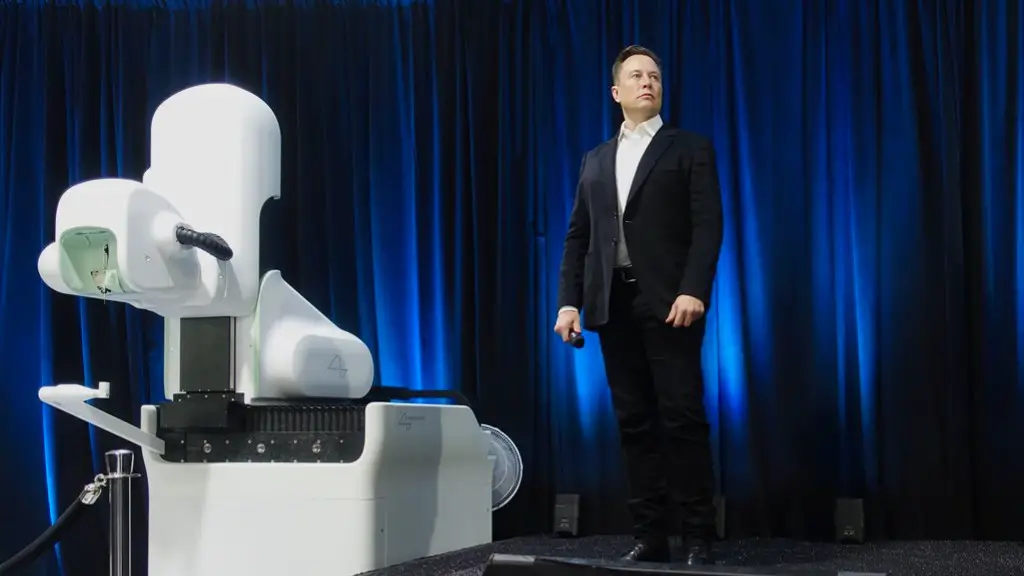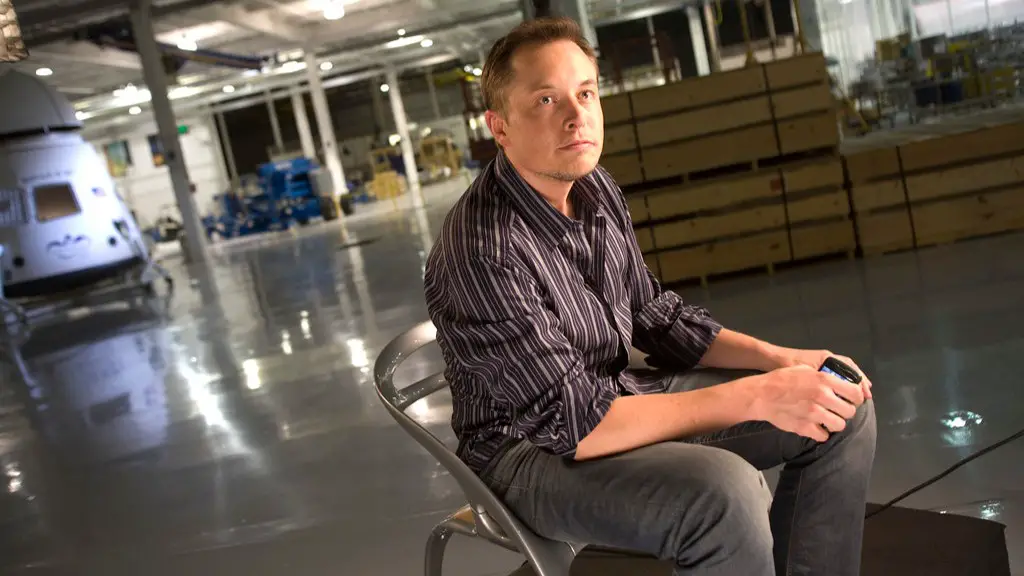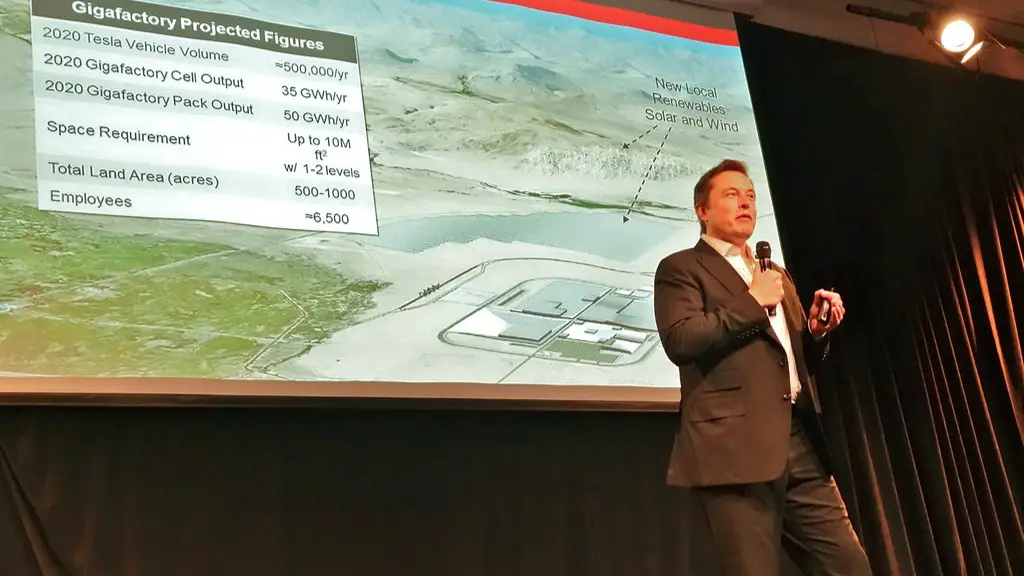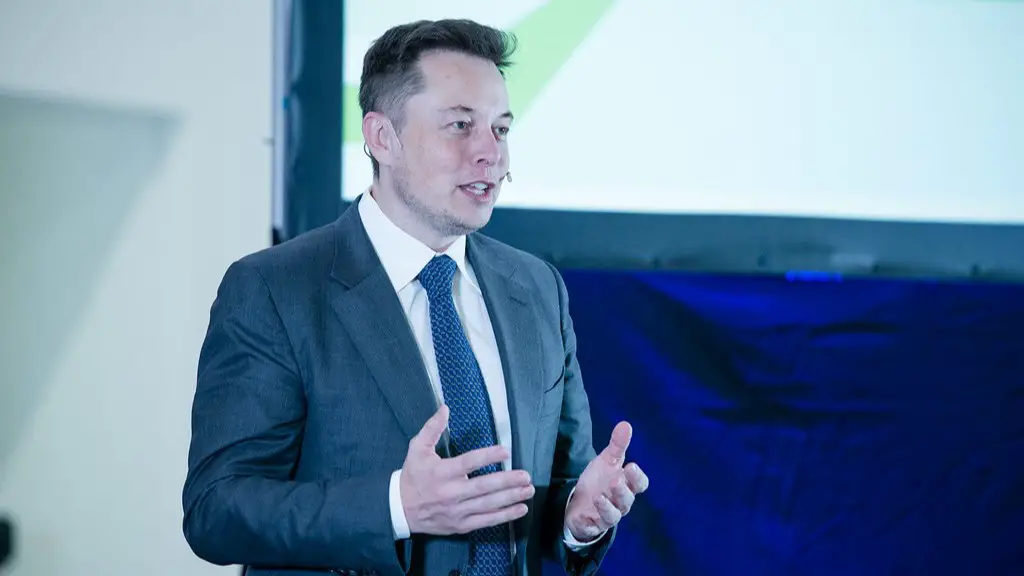Elon Musk’s bold ambition to colonize Mars is driving the world’s most advanced space exploration technology. For years, Musk has been on a mission to make humanity a multi-planet species and jumpstart a space-faring economy. But why out of all the other destinations in the universe did Musk choose Mars? In this article, we’ll examine the reasons why Musk chose the red planet and how he’s preparing us to become an interplanetary species.
History, Significance and Potential of Mars
Mars is the fourth planet from the Sun and has been studied for centuries by astronomers, astronauts and now entrepreneurs such as Musk. It’s a planet of special significance for humans, as it’s the closest in proximity to Earth, and many believe is the most likely to harbor traces of extraterrestrial life. It also has the potential to host new cities and colonies, and could serve as a stepping stone for further exploration of the universe.
Musk’s fascination with Mars began before his satellite internet companies and electric cars. In 2002, Musk revealed his “Mars Oasis” plan, a project to send a miniature greenhouse and crops to the dusty planet’s surface. The goal was to re-ignite public interest in space exploration and spark a new era of Martian exploration.
Why Musk Chose Mars
Though Musk’s motivations for colonizing Mars are understandably complex, he has laid out a few clear reasons for why he’s tackling this ambitious project. To put it simply, he believes Mars will offer humanity the best chance at long-term survival and continued progress. One of the primary goals of SpaceX is to provide humans with the means to become an interplanetary species, to protect us from extinction-level events and to further our technological development.
Additionally, Musk believes that exploring and settling Mars can inspire a new generation of space enthusiasts and entrepreneurs. Musk believes that by making space exploration more accessible and profitable, he can drive humanity towards a future of exploration and adventure. He also has expressed his hope that, through exploration, humans will gain an appreciation of Earth and the planet’s resources.
Musk’s Plan to Colonize Mars
When Musk first announced his interest in colonizing Mars, many were skeptical of the feasibility of a large-scale mission. But since then, SpaceX has made impressive strides in developing the technology and infrastructure necessary for such a mission. The most significant of these steps has been the development of the Raptor rocket engine, which Musk claims could reduce the cost of Mars travel by a factor of ten.
The company is also in the process of developing the Starship, an enormous spacecraft designed to make long-distance flights to Mars possible. The Starship will be capable of carrying up to 100 passengers and cargo to the red planet with the help of SpaceX’s Falcon reusable rocket boosters. Musk is also planning to introduce a space-based internet network, called Starlink, which will provide high-speed internet access in space.
These projects are just a few steps in Musk’s ambitious plan to settle Mars. He envisions a future in which humans live and work on the red planet, creating a self-sustaining Martian colony with the help of cutting-edge artificial intelligence technology.
The Challenges Ahead
Despite the advances that have been made in space exploration technology, Musk’s mission to colonize Mars still faces major challenges. The greatest of these challenges is the journey itself. A human mission to Mars would require astronauts to survive an estimated six-month journey in zero gravity, which poses a major threat to human health.
Musk also has to contend with the potentially dangerous environment of Mars. The planet’s unforgiving climate and intense radiation could be lethal to human settlers, and the thin atmosphere holds little protection from the dangerous cosmic rays that bombard Mars. While modern technology has made it possible to produce air and water on Mars, the planet’s environment is still pose a significant risk to human life.
The Benefits of Colonizing Mars
Though there are many challenges to Musk’s ‘Mars-shot’, there are also potential benefits to colonizing the red planet. The most obvious benefit is the potential for further exploration and discovery. The moon and asteroids may one day become viable destinations for human exploration, and the technology and infrastructure developed for Mars could be used to reach these locations.
Additionally, colonizing Mars could also open up new frontiers of scientific inquiry. With the opportunity to study new geology, climate and possibly life forms, scientists could open up new realms of exploration. Furthermore, the Mars colony could become a source of pride and inspiration, showing the world that humans can accomplish great things even when they’re confined to a single planet.
Musk’s Innovative Approach to Colonization
Musk’s ambitious plan to colonize Mars is the product of his innovative approach to space exploration. He envisions a future of space exploration that is not only bold and far-reaching, but also actionable and realistic. Instead of waiting for governments to act, Musk intends to use his entrepreneurial skills and cutting-edge technology to make space exploration a reality, bringing us closer to a future of interplanetary travel.
Current Space Exploration Technology
Musk’s plan may seem out of this world, but the technology and infrastructure necessary for interplanetary travel is within reach. SpaceX is currently developing a range of reusable rockets, spacecraft and space stations, which the company believes will make long-distance missions to Mars more efficient and cost-effective. Musk also plans to utilize existing space stations, such as the International Space Station and the Lunar Gateway, to facilitate missions to Mars and beyond.
The technology needed to explore Mars has already been successfully tested and deployed in space. SpaceX recently completed the first test flight of its Starship prototype, which flew to an altitude of 41,000 feet before landing safely back on Earth. The success of this test is a major milestone for Musk and his goal of colonizing Mars.
SpaceX’s Role in Mars Exploration
Musk’s plans to colonize Mars are ambitious, but not impractical. With the help of SpaceX and its cutting-edge technology, humans may soon have the means to explore and settle the red planet. SpaceX will be responsible for providing the rockets, spacecraft, technology and infrastructure that will enable us to explore the final frontier.
The company also plans to establish a permanent human presence on Mars, with the eventual goal of turning the planet into a bustling hub of scientific exploration and economic activity. By pushing the boundaries of space exploration, Musk hopes to inspire a new generation of pioneers to explore and settle the universe beyond our own planet.
Musk’s Vision for the Future
The colonization of Mars is a bold endeavor that has the potential to shape the future of space exploration and life on Earth. If successful, this undertaking could set in motion a new era of exploration and adventure, and could also create a new generation of entrepreneurs and scientists. For Musk, this project is about more than just making money: it’s about humanity’s future and our potential to become an interplanetary species.
In order to achieve his goals, Musk has assembled a team of passionate and driven people who are working to make his vision a reality. The progress that has been made so far is a testament to Musk’s pioneering spirit, and he’s determined to continue pushing the limits of aerospace technology in service of a bolder, brighter future.
Alternative Mars Exploration Innovations
Musk isn’t the only person looking to revolutionize space exploration. Several organizations and governments around the world are developing innovative solutions to explore, understand and settle the red planet. NASA, for example, is currently working on the Space Launch System (SLS), which is the most powerful rocket ever built and is designed to be the cornerstone of its Mars exploration efforts.
The European Space Agency (ESA) also has ambitious plans for Mars. Its ExoMars mission will send a rover to the planet to search for signs of life, and its Trace Gas Orbiter (TGO) will study the Martian atmosphere for clues about its climate and geology. ESA is also planning an ambitious sample return mission, which would be the first ever mission of its kind.
Other organizations, such as the Asia-Pacific Space Cooperation Organization (APSCO), are also looking to explore the red planet. APSCO recently launched the joint Mars exploration mission, which will involve the participation of several countries in the region.
Preparing for a Future with Mars
At present, the colonization of Mars is still years away. But that doesn’t mean we can’t start preparing for the future. Scientists and engineers around the world are working hard to develop the necessary technology and infrastructure that will make this mission possible.
Musk is also encouraging students and entrepreneurs to develop creative solutions to tackle obstacles in space exploration. He believes that the combination of cutting-edge technology, public engagement and collaborative initiatives will be key to making space exploration a reality.
With our current efforts and Musk’s determined drive, a future with Mars could become a reality soon.





